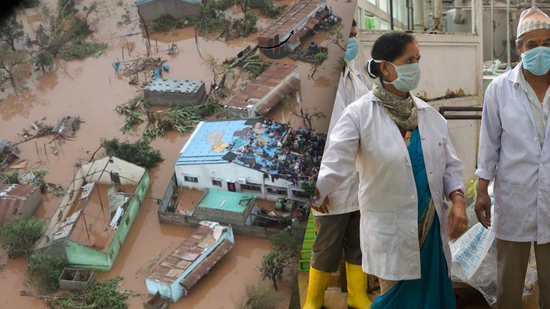
This training provides a high-level overview for decision-makers and technical experts from governments and key stakeholders or partners involved in Readiness Contingency Planning, and Implementation. Readiness Contingency planning (RCP) is part of a cycle in which the identification and regular monitoring of risks, vulnerabilities, and capabilities inform the planning and implementation of measures to mitigate the risks and to get ready to respond to high-priority risks or imminent health emergencies.
This training defines key principles, approaches, and tools to assess your readiness status and plan for anticipatory actions to strengthen your readiness for response operations.
Photo credits: WHO / Tom Pietrasik
语言: English
Health topic
课程信息
This training is intended to be used by all key stakeholders involved in health emergencies readiness for response operations including:
- Senior government officials: those who will typically lead the development of a multi-hazard or hazard-specific contingency plan and will be responsible for testing, updating, reviewing and triggering the plan.
- Technical experts: experts in ministries of health, other government ministries and bodies, UN agencies, non-governmental organizations (NGOs), humanitarian actors and other partners involved in strengthening critical capabilities and implementing anticipatory actions enabling rapid, effective responses to imminent threats.
Course duration: Approximately 1 hour.
Certificates: A Certificate of Achievement will be available to participants who score at least 80% of the total points available across all of the quizzes. Participants who receive a Certificate of Achievement can also download an Open Badge for this course. Click here to learn how.
你将学到什么
- Explain how readiness can reduce the impact of public health emergencies in your country
- Explain the definition, scope, key principles and processes of readiness
- Assess your own level of readiness
- Develop an action plan as part of your readiness contingency plan
- Explain the importance of initiating your readiness process on time
- Explain the importance of strengthening core readiness functions to be able to respond rapidly to unexpected or unknown threats
- Outline the critical importance of engaging partners early for rapid mobilization of resources, particularly when those resources are not available domestically
课程内容
Introduction:
This video gives a high-level overview of public health challenges and how readiness can make a big difference. It also describes content and objectives of the training modules.Module 1- Basics of Health Emergency Readiness for Response Operations:
This module provides an overview of the terminologies, basic concepts, process, and scope of Health Emergencies Readiness for Response Operations (HERO).Module 2- Readiness process:
This module provides a brief description of the basic steps to assess and strengthen readiness levels at the country or subnational level from review of risks, assessment of capabilities, mobilization, and partnership for the implementations.Module 3- Readiness assessment and prioritization tool:
This module describes the available digital tools that supports countries in conducting an assessment, prioritization and mobilization of Operational Readiness capabilities and actions